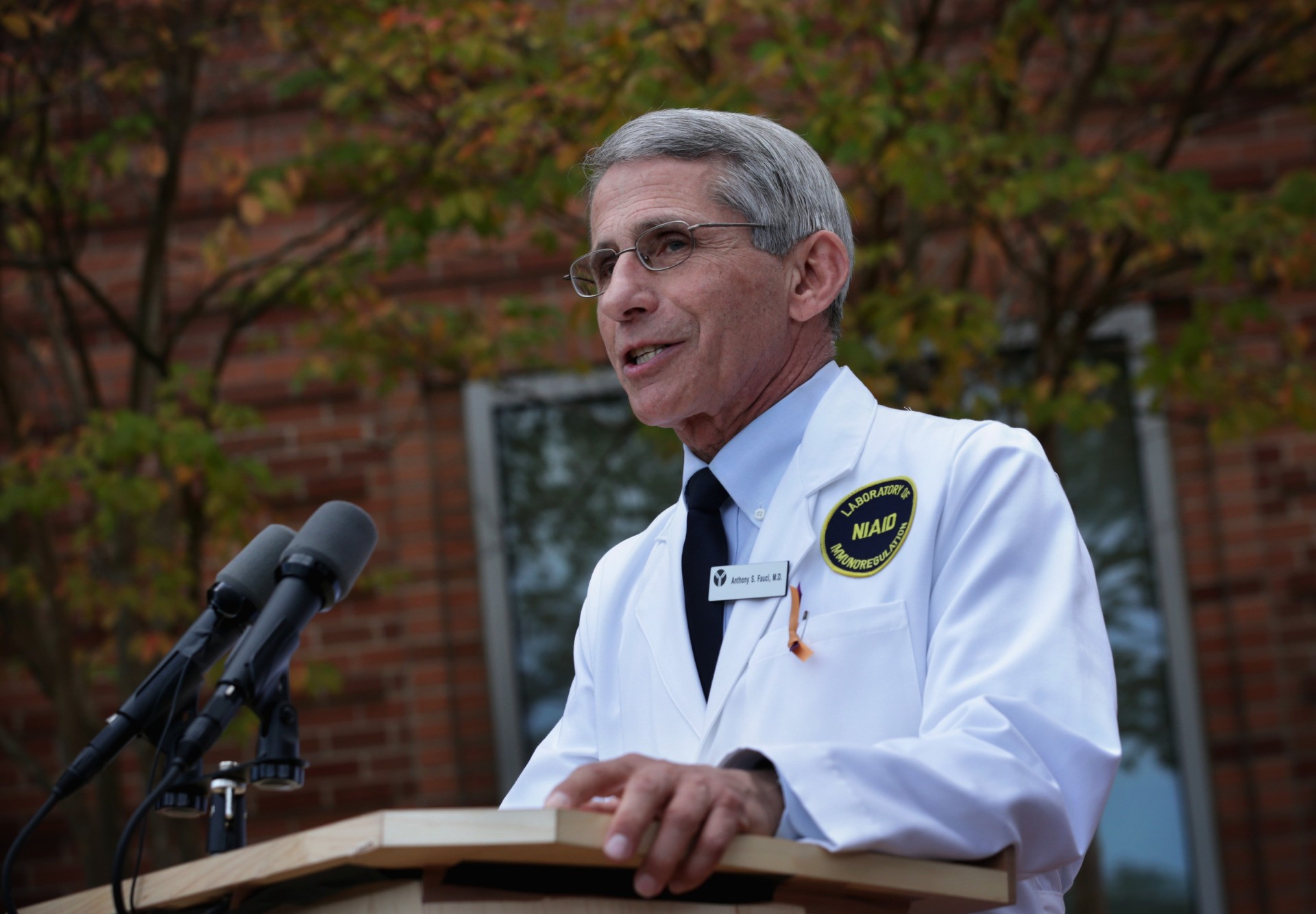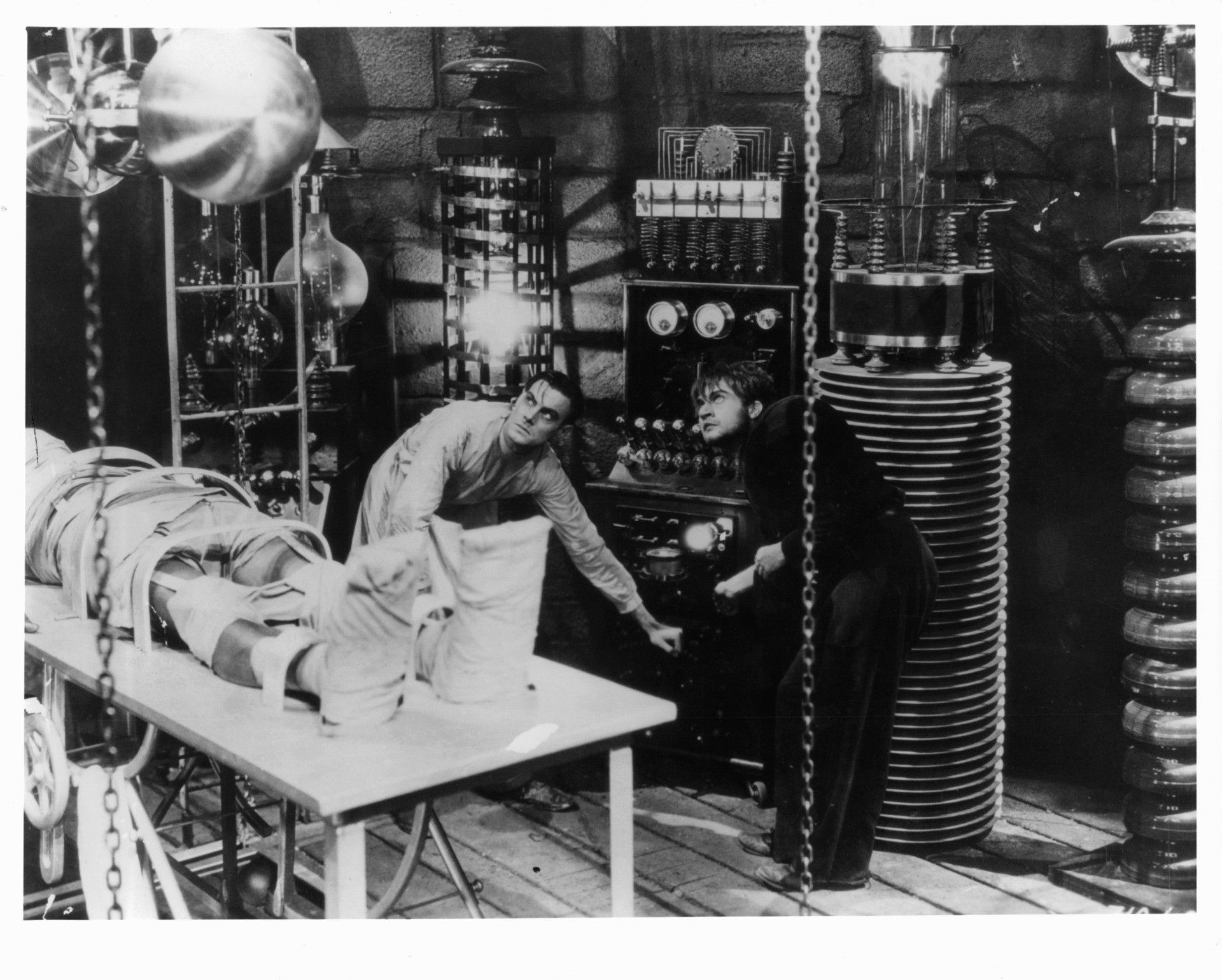(breitbart) – In the last few weeks, we’ve all learned a new phrase from the eerie realm of virology: “gain of function research.” Abbreviated as GOFR, it’s defined as “any field of medical research that alters an organism or disease in a way that increases pathogenesis, transmissibility, or host range (the types of hosts that a microorganism can infect).”
So yeah, just to hear about it, gain of function research sounds dangerous. And yet many experts say that it is a good idea, because that’s how we learn about viruses and how to counter them. One expert who has made this argument is Dr. Anthony Fauci, head of the National Institutes for Allergy and Infectious Diseases (NIAID); he’s the man who has, of course, during the Covid-19 pandemic, become a household name.
Fauci hasn’t mentioned gain of function research much in the last year, let alone his association with it, and yet now we are learning more about him and his associations—and it’s all scary.
On May 28, Sharri Markson published a piece in The Australian, recalling a 2012 article by Fauci, in which he acknowledged the risks of gain of function research and yet argued in favor of going ahead anyway. As he wrote nearly a decade ago, “In an unlikely but conceivable turn of events, what if that scientist becomes infected with the virus, which leads to an outbreak and ultimately triggers a pandemic?” And yet, he continued, “the benefits of such experiments and the resulting knowledge outweigh the risks.”

Director of the National Institute of Allergy and Infectious Diseases Anthony Fauci speaks to members of the media during a news briefing at the National Institutes of Health on October 24, 2014 in Bethesda, Maryland. (Alex Wong/Getty Images)
So while U.S. government funding for gain of function research was paused in 2014 out of concern for safety; in 2017, in part because of Fauci’s prodding, it was restarted once again.
Then came Covid-19, which has killed nearly 700,000 Americans and some three million more around the world (and massively disrupted the economy for just about everyone except Jeff Bezos, who has, of course, profited handsomely).
And while we have vaccines now for Covid-19, we don’t know what’s coming next. In the warning words of Baylor College of Medicine professor Peter Hotez, “There’s going to be Covid-26 and Covid-32 unless we fully understand the origins of Covid-19.”
In the meantime though the unresolved questions about Covid-19 are piling up. Specifically, did it come from the Wuhan Institute of Virology? And did gain of function research contribute to Covid’s deadliness? And did U.S. funding of the Chinese lab greenlighted by Fauci play a role?
Last month, former New York Times reporter Nicholas Wade recalled “the long history of viruses escaping from even the best-run laboratories.” And speaking specifically to the question of gain of function research, he added, “From the hindsight of 2021, one can say that the value of gain-of-function studies in preventing the [Covid-19] epidemic was zero.” And yet, he added, “The risk was catastrophic.”
Wade then added some useful political context, seeking to separate out the science of Covid-19 from its politics; that is, the political framing of the issue, much of it traceable to the liberal establishment’s loathing of Donald Trump. After all, back in 2020, the 45th president had been saying that the People’s Republic of China was at fault—and for just as long, the MSM and the expert class had been saying that, no, it was mostly Trump’s fault.
As Wade put it, “Wuhan lab cooking up novel viruses of maximal danger in unsafe conditions could eventually displace the ideological insistence that whatever Trump said can’t be true.” So now, Wade writes, “Let the reckoning begin.”

Security personnel stand guard outside the Wuhan Institute of Virology in Wuhan as members of the World Health Organization (WHO) team investigating the origins of the COVID-19 coronavirus make a visit to the institute in Wuhan in China’s central Hubei province on February 3, 2021. (Photo by HECTOR RETAMAL/AFP via Getty Images)
Indeed, now that Trump is out of office the reckoning is beginning. For instance, President Joe Biden is now interested in Covid’s origins. Having canceled an investigation begun under Trump, he has ordered his own new investigation. (Democrats must do everything they can to avoid the Trump Taint.)
In the meantime, Sen. Rand Paul (R-KY) has accused Fauci of committing perjury before the U.S. Senate. And in the words of Rep. Michael McCaul (R-TX), Covid-19 could be “the worst cover-up in human history.” Meanwhile, House Republican Leader Kevin McCarthy was blunt and to the point: Fauci should resign.
We can note that Paul, McCaul, and McCarthy made those strong statements even before it became widely known that Fauci had been briefing foreign leaders on the possible lab-leak as far back as Spring 2020, even as he was, at the same time, dismissing the thought to American audiences. (Here at Breitbart News, this author reported on the same suspicions back on April 26, 2020.)
In the meantime, it’s worth asking: What exactly is going on with science? How did it get like this? How did we get ideas such as gain of function research? To answer such questions, we must step back and think about the nature of science—and the nature of scientists.
Science’s Gain of Power
Across history, most scientists have been motivated by a single word: curiosity. And from curiosity came experimentation and the scientific method, and science was off and rolling. Of course, curiosity can be connected to other motives, such as the desire to improve the human condition. And sometimes, of course, such improvement was defined as winning a war.
For instance, in the 3rd century BCE, Archimedes of Syracuse was esteemed as a mathematician and physicist, and yet he also had a practical turn of mind, applying his genius to the design of pulleys, levers, and water screws—devices which could in turn be used as war machines. And at the same time, Archimedes thought big: “Give me a platform to stand on,” he said, “and I will move the Earth.” Now that’s ambition. So we can see: scientific curiosity can blossom in many different ways, some healthy and some deadly.
An interesting look into the psychology of scientists was found in the March 31, 2006, issue of Science magazine, published by the venerable American Association for the Advancement of Science. The title of the article: “The Secret Passions of Scientists.” As the writer explained:
When you spend quality time with scientists outside the laboratory, rich personalities emerge, and you may be startled by what you discover. They can be just like Dr. Jekyll and Mr. Hyde.
Whoa! Those last words are a reference, of course, to Robert Louis Stevenson’s 1886 novella, The Strange Case of Dr Jekyll and Mr Hyde; in that work, Dr. Jekyll, a well-meaning but reckless scientist, formulates and drinks a potion that turns him into the evil, murderous Mr. Hyde. So yes, there’s a lesson in Stevenson’s story about the need to be careful and to think twice before messing with Mother Nature.
And yes, there’s a lesson too in the decision of a modern science writer to cite Stevenson’s dark fable in a study of contemporary scientists.
Yet of course, the classic parable of runaway science is not Mr. Hyde, but rather, Dr. Frankenstein. That famous character comes to us from Mary Shelley’s 1818 novel, Frankenstein: Or, the Modern Prometheus. Over the last two centuries, Dr. Frankenstein has become the archetype of the “mad scientist,” simultaneously wildly ambitious and wildly irresponsible.
In the book, set in the early stages of the Scientific Revolution, Dr. Frankenstein expresses admiration for those scientists “whose hands seem only made to dabble in dirt,” and yet “their eyes pore over the microscope or crucible.” These bold figures, Dr. Frankenstein continues, “have indeed performed miracles.”
One recent miracle, with which author Shelley would have been much familiar, had been the smallpox vaccine, developed in the late 18th century by the British scientist Edward Jenner. Jenner’s invention would stop a virus that had annually killed millions of people and disfigured or crippled millions more each year. So it’s with ample justification that Dr. Frankenstein says admiringly of science:
They penetrate into the recesses of nature and show how she works in her hiding-places. They ascend into the heavens; they have discovered how the blood circulates, and the nature of the air we breathe. They have acquired new and almost unlimited powers; they can command the thunders of heaven, mimic the earthquake, and even mock the invisible world with its own shadows.
So now Dr. Frankenstein seeks to blaze his own trail in science by discovering “the principle of life.” Here’s how he describes his motivations:
No one can conceive the variety of feelings which bore me onwards, like a hurricane, in the first enthusiasm of success. Life and death appeared to me ideal bounds, which I should first break through, and pour a torrent of light into our dark world.
Pursuing his quest with “unremitting ardor,” Dr. Frankenstein steals human and animal body parts from graveyards and slaughterhouses and so stitches together a humanoid life form. Revealing his personal sense of aggrandizement, Dr. Frankenstein looks forward to the day when “a new species would bless me as its creator and source; many happy and excellent natures would owe their being to me.”
Yet then, when the semi-human creature is made, Dr. Frankenstein is repulsed by his ugly creation, which is eight feet tall with slimy, yellowy skin and watery eyes. Shunned by Dr. Frankenstein, the creature proves to be a quick learner and soon says to his maker, “I ought to be thy Adam, but I am rather the fallen angel.”
Only too late does Dr. Frankenstein admit that “the evil influence, the Angel of Destruction” had “asserted omnipotent sway over me.” Belatedly seeking to undo what he has done, Dr. Frankenstein seeks to hunt down the creature and dies in the process. With his last breath, he issues this caution to a friend: “Seek happiness in tranquillity and avoid ambition, even if it be only the apparently innocent one of distinguishing yourself in science and discoveries.” So we can see: the title character traverses an arc from limitless ambition to embittered humility.
Yet of course, during the 19th century, the desire for progress and prosperity, greatly strengthened by science, was an irresistible force. In Britain, the hub of empire in those days, both the standard of living and life expectancy rose sharply, while the population quintupled.
Then came the 20th century, and with it, the first widespread realization that progress was not a one-way street. The great industrial carnage of World War One—made worse by fiendish scientific inventions like the machine gun and poison gas—shook our civilizational confidence. In the meantime, another wartime innovation, plastic surgery, while undeniably a great help to those disfigured in the war, made the idea of assembling human body parts all the more tangible. And so Frankenstein was due for a revival, which came in the form of a 1931 movie, now a certified classic. The movie Frankenstein was all the scarier because the scenario seemed so much more plausible in the 20th century than in the 19th.
At the beginning of the film, a well-dressed emcee emerges to give us a warning, both about the fearfulness of the subject matter and the consequences of scientific pursuit without a moral framework: “We’re about to unfold the story of Frankenstein, a man of science who sought to create a man after his own image without reckoning upon God.”
Indeed, early in the movie, actor Colin Clive, playing Dr. Frankenstein, speaks openly of his determination to push boundaries no matter what. Speaking for the dark side of science, he says the quiet part out loud, articulating the seduction of risky science:
Have you never wanted to do anything that was dangerous? Where should we be if no one tried to find out what lies beyond? Have your never wanted to look beyond the clouds and the stars, or to know what causes the trees to bud? And what changes the darkness into light?
As we have seen, curiosity is at the heart of science. And yet there’s sometimes more going on than just curiosity; Dr. Frankenstein continues, his eyes taking on a menacing glaze:
But if you talk like that, people call you crazy. Well, if I could discover just one of these things, what eternity is, for example, I wouldn’t care if they did think I was crazy.
Soon comes the most famous scene in the film, when Dr. Frankenstein, working in his laboratory, hunchbacked assistant at his side, watches as his creation becomes animated; he exclaims over and over again, “It’s alive!”

Colin Clive and Dwight Frye in laboratory with monster in a scene from the film ‘Frankenstein’, 1931. (Photo by Universal/Getty Images)
As we know, the creature soon runs amok, and innocent people die. Good movie, bad science.
And yet still, the dynamo of technological advancement continued to thrum, and it thrums to this day. We are ambivalent now about science—fearful of everything from atomic weapons to pollution to artificial intelligence—and yet even so, we push ahead, as inventors, producers, and consumers. Our doubts might be rising, but rising too is the perpetual tide of innovation.
Civilization’s Gain of Safety
Covid-19 should force a civilization-wide assessment of biological research. Most urgently, do we need gain of function research? That is, do we need to know how to soup up viruses? And can we trust the scientists to do this sort of research, including related research? We might add that in addition to gain of function research, there’s CRISPR (clustered regularly interspaced short palindromic repeats), another kind of genetic engineering and one of the hottest fields in biology.
So yes, let’s investigate Fauci, gain of function research, CRISPR, and, as best we can, China. In the words of Rep. Jim Banks (R-IN), the chairman of the influential Republican Study Committee, “If anything deserves a 9/11-style commission, it’s the pandemic that’s left half a million Americans dead.” For example, let’s inquire as to the activities of the New York City group called the EcoHealth Alliance. It seems to have not only given $600,000 of U.S. taxpayer funds to the Wuhan lab, but also doled out some $37 million to other foreign facilities, some of them perhaps doing similar work. We can say once again: There’s great value in science, and yet at the same time, there’s also great value in transparency and public understanding.
And while we’re at it, let’s inquire too about other kind of medical research that might be crossing the Frankenstein Line. What about, for instance, the accusations made by anti-abortion whistleblower David Daleiden, who said on Fox News on May 23 that Dr. Fauci’s NIAID had purchased cranial tissue from aborted babies and grafted those fragments of human beings on to laboratory mice. Is such research acceptable? One is reminded of the line of poetry from T.S. Eliot: “After such knowledge, what forgiveness?”
On May 27, the U.S. Senate, on a party-line vote–48 Republicans in favor, 49 Democrats against–chose not to forbid such research. Those curious about past imaginative speculations about such human-animal fusion might wish to take a look at H.G. Wells’ 1896 novel, The Island of Dr. Moreau, a tale of medical hubris which has been made into a movie many times. None of the versions has a happy ending.
For three centuries now, science has been an irresistible force. And while the benefits have been great, the fearfulness of Dr. Frankenstein, Mr. Hyde, and Dr. Moreau–and their real-world doppelgängers, including Dr. Fauci–has also been great.
So now we can see that we are desperately in need of an ethical, moral, and political counter-force. We need an adequate system of transparency, accountability, and the ability to say, when we need to, STOP!
As we have just been reminded, our lives could depend on it. And we don’t have time to wait for the next classic novel of warning.
breitbart.com/health/2021/06/13/pinkerton-dr-fauci-meet-dr-frankenstein-did-gain-of-function-research-create-a-monster/









